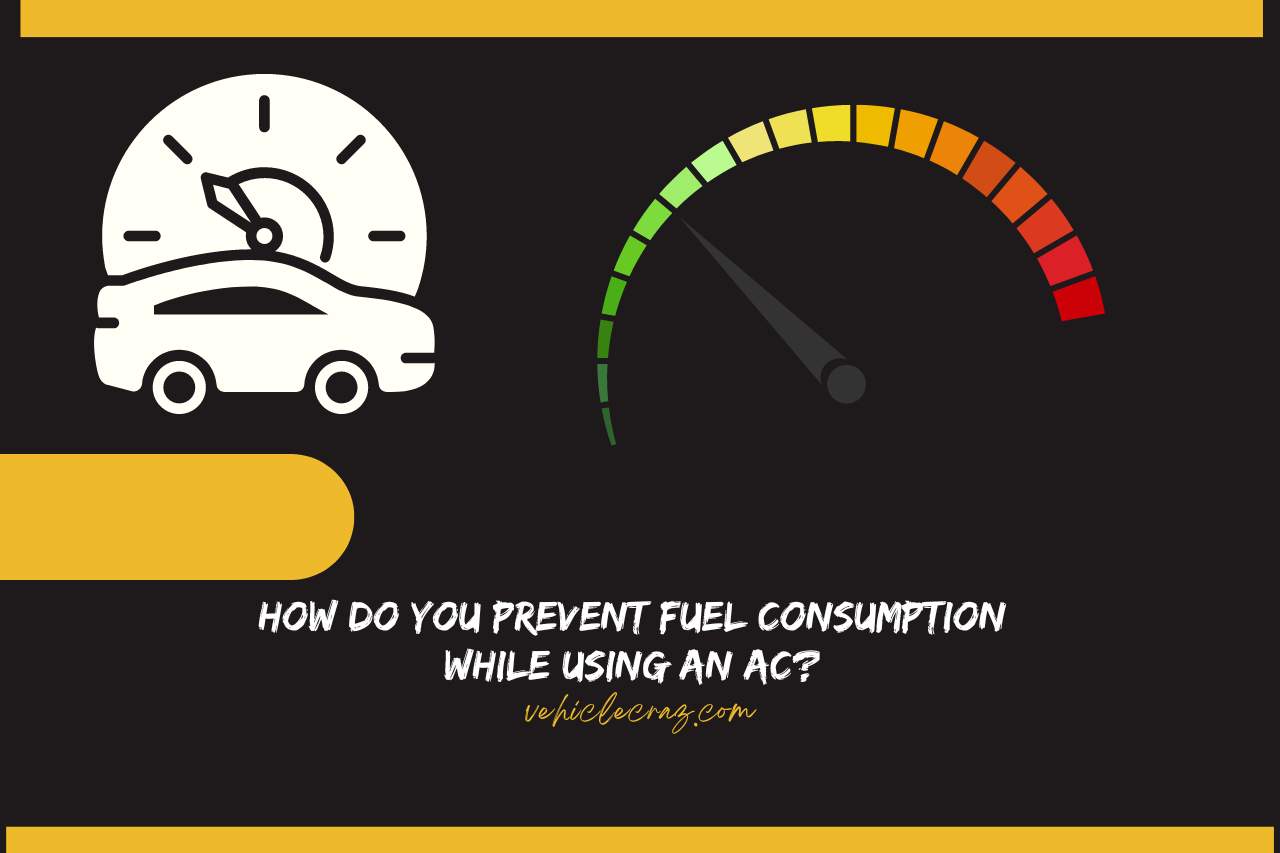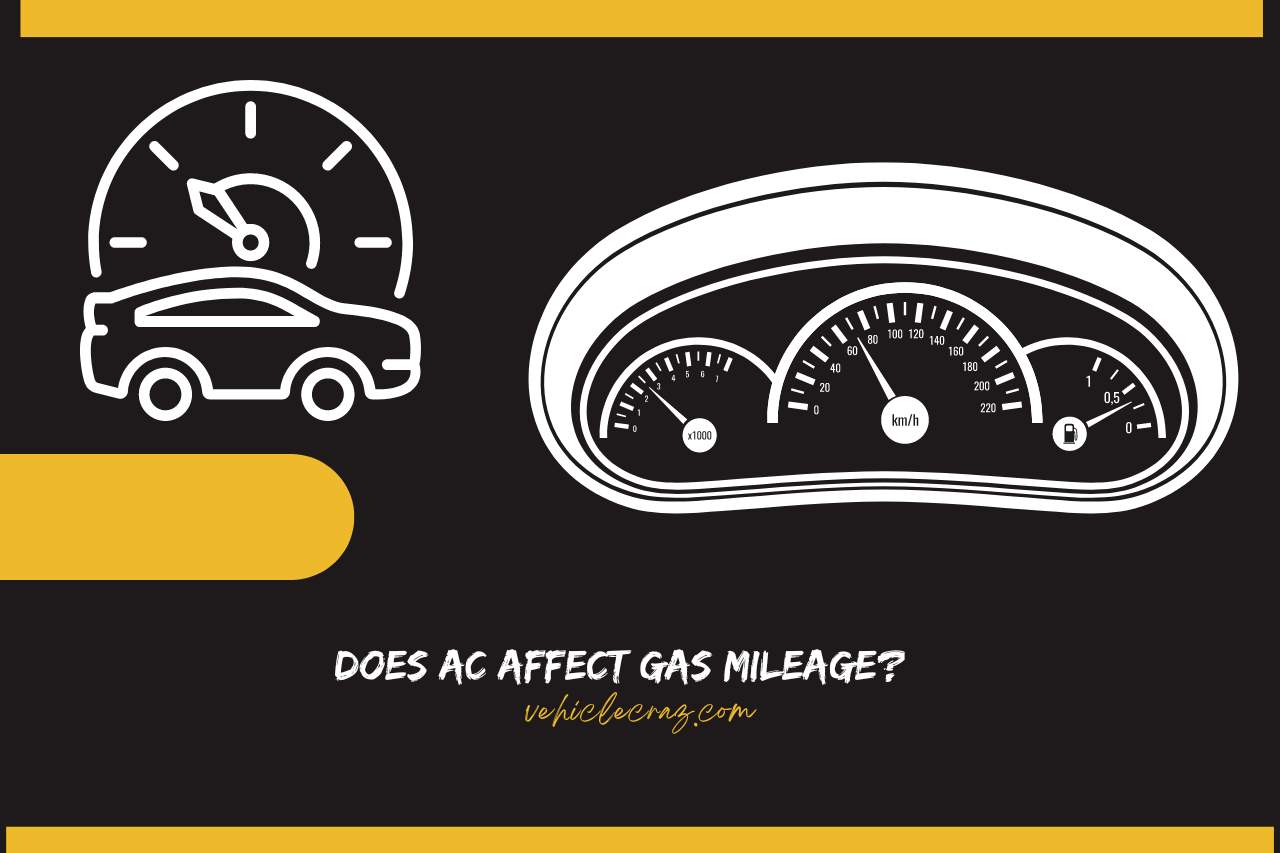Does AC Affect Gas Mileage? Understanding the Impact!
Gas mileage is one of the key factors that helps to determine a vehicle’s efficiency. However, there are some vehicle components that contribute to increasing or decreasing the gas mileage in a vehicle. Then, the car’s air conditioner comes into play as it also requires a considerable amount of energy to operate. If you are also looking for the answer to the question, ‘Does AC affect gas mileage?’, this discussion will provide you with a clear insight as we cover all the aspects of the effect caused by the AC on gas mileage.
Does AC Affect Gas Mileage?
Yes, air conditioning can affect gas mileage. When you use AC, your car’s engine has to work harder to power the compressor that runs the system. As a result, the fuel consumption will be increased.
However, the extent of the impact varies based on factors like driving speed, outside temperature, and the efficiency of your vehicle’s AC system.
At lower speeds or in stop-and-go traffic, the effect on gas mileage is more significant than at higher speeds.
Undoubtedly, in extremely hot conditions, the difference may be more noticeable as the AC system has to work harder to cool the interior.
Thus, it’s advisable to use AC judiciously and rely on ventilation or open windows when conditions allow to maximize fuel efficiency.
How Much Gas Does a Car’s Air Conditioner Use?
The amount of gas a car’s air conditioner uses can vary, but it typically leads to a reduction in fuel efficiency. In general, there are approximations suggesting that it may reduce mileage by around 3 MPG.
In other words, using the AC can result in a 5-25% increase in fuel consumption, depending on factors such as driving conditions, the efficiency of the AC system, and vehicle age and model. Heavy traffic and hot weather mostly contribute to increased fuel usage.
While there isn’t a precise figure for the gas consumption of an AC, it’s advisable to use it judiciously to conserve fuel. And it is highly important to keep the vehicle’s HVAC system healthy.
Which Car AC Setting is Best for Gas Mileage?
Normally, the moderate or low AC settings are best for gas mileage. The reason why, lower settings consume less energy from the engine compared to higher settings reducing the additional load on fuel consumption.
In contrast, when the AC is set to high, it requires more power from the engine, leading to increased fuel usage.
To maximize fuel efficiency, consider using the AC selectively. Turn it on when necessary and turn it off, or use lower settings when the desired comfort level is reached.


How Do you Prevent Fuel Consumption While Using an AC?
There are some tips to follow in order to prevent fuel consumption while you use your AC. If you practice these things, you will notice a difference in fuel economy.
- Selective Usage: Use the AC selectively; turn it off when unnecessary.
- Ventilation: Opt for natural ventilation as much as you can; open windows at lower speeds.
- Shaded Parking: Park in shaded areas to reduce the initial need for intense cooling.
- Maintenance: Regularly clean or replace air filters to ensure the AC operates efficiently.
- Strategic Planning: Be wise when choosing routes to avoid heavy traffic or peak heat, reducing AC demand.
- Window Management: Keep windows closed at higher speeds to minimize aerodynamic drag.
- Sunshade Use: Utilize a sunshade when parked to keep the interior cooler.
- Tire Pressure: Maintain proper tire pressure for overall fuel efficiency.
- Vehicle Tune-up: Ensure your vehicle is well-tuned to optimize fuel consumption.
You May Also Like
- How Often to Use Fuel Injector Cleaner? Unlocking Peak Performance!
- Does Fuel Stabilizer Expire? (Risks & Solutions)
- How to Dispose of Old Fuel? (Step-by-Step Guide)
- How to Drain a Fuel Tank without Removing It? No Need for Removal!
- Does Fuel Injection Affect Mileage? Unraveling Its Influence!
- Does Gas or Diesel Get Better Mileage? Unveiling the Truth!


I’m Alex, a seasoned mechanical teacher with over 20 years of hands-on experience in Australia. My passion for all things automotive has driven me to establish this blog, aiming to share my wealth of knowledge and expertise with fellow enthusiasts, DIYers, and anyone keen on understanding the mechanics behind the machines we rely on daily.




![Does The Odometer Reset When The Engine Is Replaced? [Answered]](https://vehiclecraz.com/wp-content/uploads/2023/09/7-768x512.jpg)


![Odometer Not Working After Battery Change? [Fixed]](https://vehiclecraz.com/wp-content/uploads/2023/09/12-1-768x512.jpg)